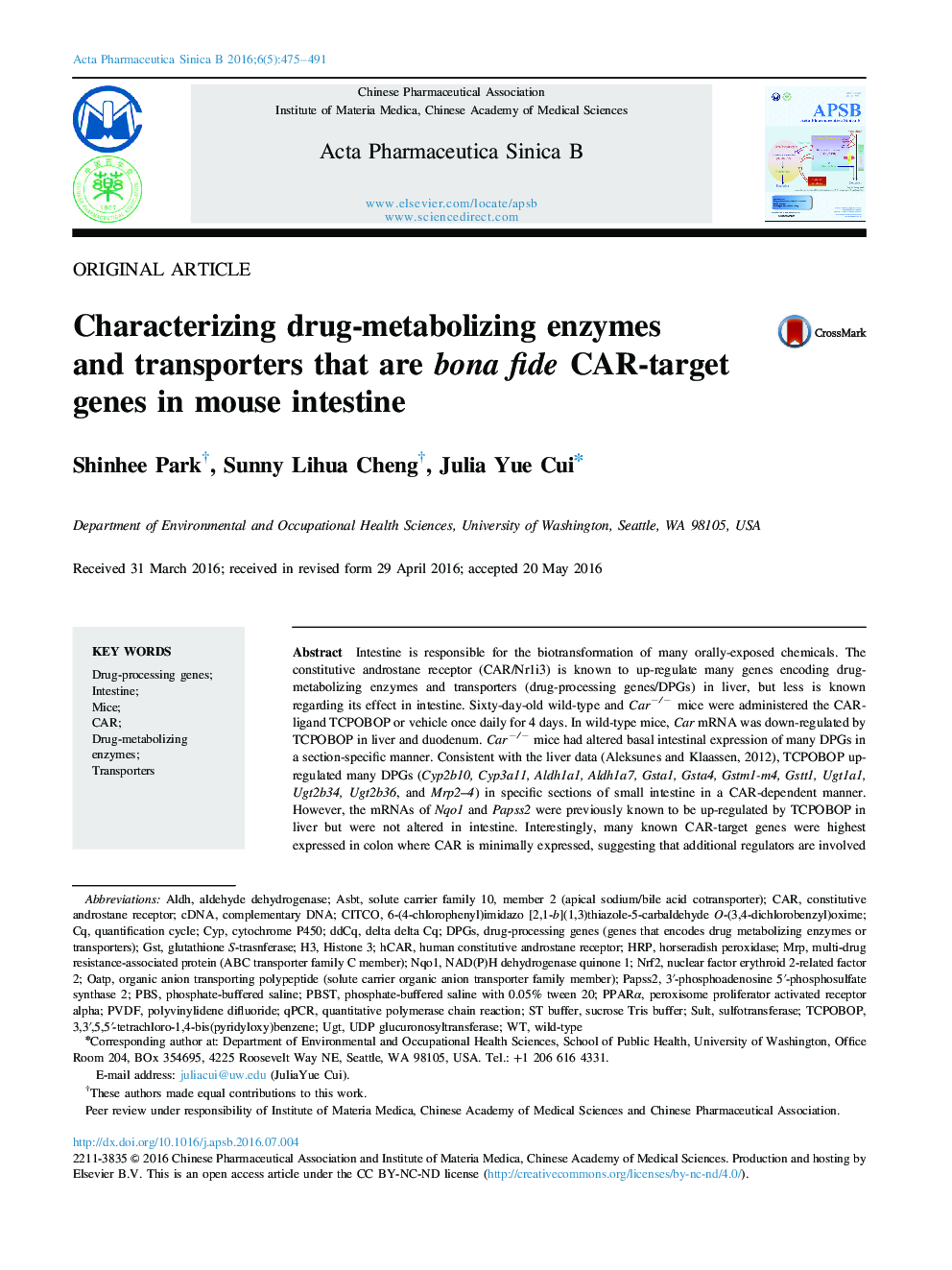| Article ID | Journal | Published Year | Pages | File Type |
|---|---|---|---|---|
| 5546555 | Acta Pharmaceutica Sinica B | 2016 | 17 Pages |
Intestine is responsible for the biotransformation of many orally-exposed chemicals. The constitutive androstane receptor (CAR/Nr1i3) is known to up-regulate many genes encoding drug-metabolizing enzymes and transporters (drug-processing genes/DPGs) in liver, but less is known regarding its effect in intestine. Sixty-day-old wild-type and Carâ/â mice were administered the CAR-ligand TCPOBOP or vehicle once daily for 4 days. In wild-type mice, Car mRNA was down-regulated by TCPOBOP in liver and duodenum. Carâ/â mice had altered basal intestinal expression of many DPGs in a section-specific manner. Consistent with the liver data (Aleksunes and Klaassen, 2012), TCPOBOP up-regulated many DPGs (Cyp2b10, Cyp3a11, Aldh1a1, Aldh1a7, Gsta1, Gsta4, Gstm1-m4, Gstt1, Ugt1a1, Ugt2b34, Ugt2b36, and Mrp2-4) in specific sections of small intestine in a CAR-dependent manner. However, the mRNAs of Nqo1 and Papss2 were previously known to be up-regulated by TCPOBOP in liver but were not altered in intestine. Interestingly, many known CAR-target genes were highest expressed in colon where CAR is minimally expressed, suggesting that additional regulators are involved in regulating their expression. In conclusion, CAR regulates the basal expression of many DPGs in intestine, and although many hepatic CAR-targeted DPGs were bona fide CAR-targets in intestine, pharmacological activation of CAR in liver and intestine are not identical.
Graphical abstractIntestine is responsible for the biotransformation of many orally-exposed chemicals. The constitutive androstane receptor (CAR) is known as an important xenobiotic-sensing transcription factor in liver. The present study used wild-type and CAR-null mice and showed that many critical drug-metabolizing enzymes and transporters are also bona fide CAR-target genes in intestine.Download high-res image (302KB)Download full-size image
